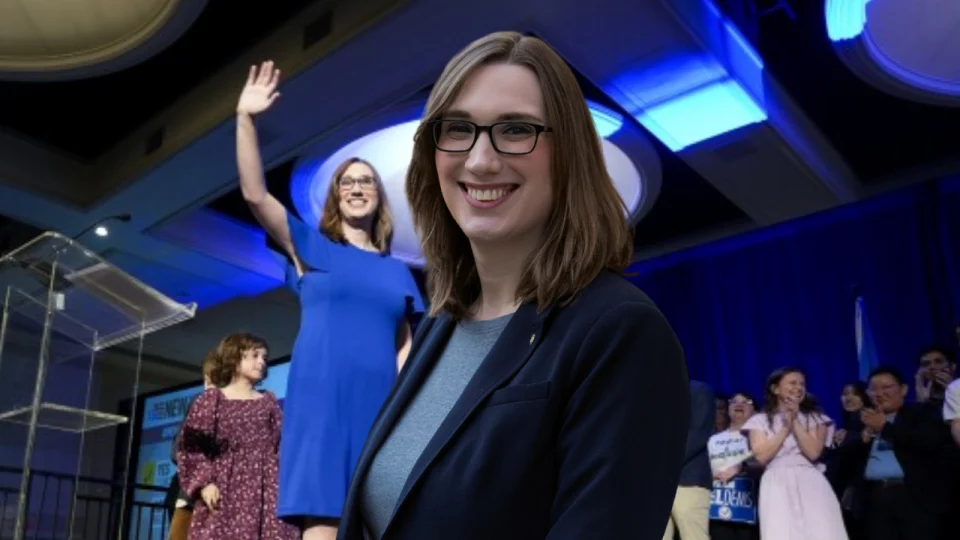Sarah McBride has made history as the first openly transgender person to serve in the United States Congress. Winning her race as the representative for Delaware, McBride’s achievement signals a monumental step forward for inclusivity in governance, shattering barriers and igniting hope within and beyond the LGBTQ+ community. Her journey from an LGBTQ+ activist to a national figure in American politics has not only inspired countless individuals but also challenged perceptions and opened new possibilities for representation.
As the United States looks ahead, the story of Sarah McBride serves as a testament to resilience, progress, and the power of representation.
Table of Contents
An Advocate for Equality and Human Rights
Before entering the political spotlight, Sarah McBride was already a familiar name within the LGBTQ+ advocacy community. She has been a longtime advocate for human rights, particularly focusing on non-discrimination policies that protect vulnerable groups from exclusion and bias. McBride’s career began with her work as a national spokesperson for the Human Rights Campaign, the largest LGBTQ+ advocacy organization in the United States, where she fought tirelessly for equality and legislative protections for marginalized communities.
Her experience working in the Obama White House further shaped her perspective on governance and public service. Here, McBride was exposed to the intricacies of policy-making at the national level and witnessed firsthand the potential of a government that prioritizes inclusivity. Her time at the White House and within advocacy groups provided her with the skills and knowledge to navigate complex political landscapes, equipping her to challenge existing norms and amplify the voices of those who have historically been sidelined.
McBride’s journey has been defined by her dedication to human rights, but it is her unique position and lived experiences that resonate deeply with those she represents. By leveraging her background and advocating for comprehensive protections, she aims to foster a more inclusive and empathetic society, both within her state of Delaware and on the national stage.
Personal Loss and Motivation to Make a Difference
McBride’s life has also been marked by personal tragedy that has further shaped her approach to advocacy. In 2014, she married Andrew Cray, a fellow LGBTQ+ rights activist who shared her passion for equality and social justice. Tragically, Cray passed away from oral cancer just days after their wedding, a loss that left a profound impact on McBride’s life. She has described her work in public service as a “love letter” to Cray, an enduring testament to his influence on her values and motivations.
This personal loss became a driving force behind her legislative efforts, especially in areas that align with Cray’s vision for a more equitable society. McBride often reflects on the lessons she learned from her late husband, carrying these forward in her mission to enact change. She has stated that his memory guides her decisions, urging her to continue the fight for justice and equality. This deeply personal motivation not only strengthens her resolve but also endears her to constituents who see in her the courage to transform pain into purpose.
McBride’s commitment to her work as a legislator transcends typical political agendas. It is a tribute to Cray’s legacy, and through this dedication, she exemplifies the power of resilience in the face of hardship. Her advocacy is both an homage and an ongoing mission to protect the rights of others and to ensure that no one else has to face the struggles that her husband encountered.
A Close Bond with Beau Biden
Sarah McBride’s connection with the Biden family also adds a layer of depth to her political journey. She shared a meaningful friendship with Beau Biden, the late son of President Joe Biden, who served as Delaware’s attorney general before his untimely passing in 2015. Their relationship was rooted in shared values and mutual respect, and Beau Biden’s influence on McBride is evident in her approach to public service and justice.
After her primary win in September, President Joe Biden personally reached out to McBride to congratulate her, referencing Beau’s pride in her achievement. For McBride, the gesture was an emotional moment, a reminder of Beau’s legacy and his unwavering belief in her potential. She has often said that she draws strength and guidance from Beau Biden’s memory, even asking herself, “What would Beau do?” when faced with challenging decisions on the campaign trail.
This bond with Beau Biden, reinforced by the President’s words of support, highlights McBride’s commitment to values such as integrity, compassion, and perseverance. Her friendship with Beau serves as a testament to her character and offers insight into the principles that drive her as a representative.
A Groundbreaking Victory and What It Means for Representation
McBride’s election as the first transgender representative in Congress signifies a historic shift in American politics. Her win is not only a victory for the LGBTQ+ community but also a message to the nation that diversity in representation matters. This achievement serves as a signal that the country is ready to embrace leaders who reflect its vast array of experiences and identities.
McBride’s campaign focused on policies that resonate with a wide spectrum of voters, not limited to issues concerning the LGBTQ+ community. She ran on a platform that included healthcare access, economic opportunity, and education reform, proving that her identity is only one facet of her qualifications. Her election demonstrates that voters are increasingly willing to support candidates based on their ideas, experiences, and commitment to change, rather than solely on their background or identity.
McBride’s success as a transgender woman in Congress is a beacon for young LGBTQ+ individuals who may have once felt that such positions were out of reach. Her journey underscores the importance of inclusion and the positive impact that diverse voices can have in shaping public policy. By breaking this barrier, McBride has not only set a precedent for future candidates but has also given hope to countless Americans who yearn for representation and understanding within the highest levels of government.
